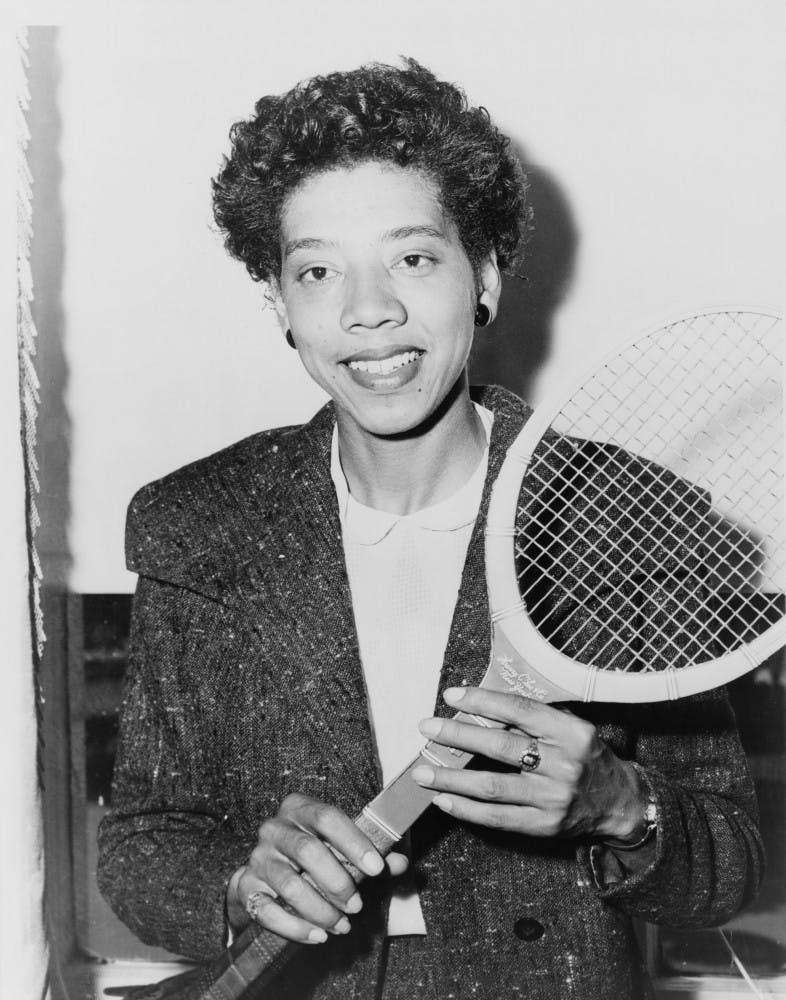In recognition of Black History Month ending and transitioning to Women's History Month, here are five influential African American women.
By Isa Kaufman-Geballe
Sojourner Truth (1797 –1883)
Before Sojourner Truth became an outspoken abolitionist, activist and notable public speaker, she was known by name given to her by her master: Isabella.
 She was born into slavery in 1797, and took on the name Sojourner Truth when freed under New York's Gradual Abolition Act of 1827.
She was born into slavery in 1797, and took on the name Sojourner Truth when freed under New York's Gradual Abolition Act of 1827.
“Sojourner, because I was to travel up and down the land showing people their sins and being a sign to them, and Truth because I was to declare the truth unto the people."
Sojourner Truth
Truth was never taught how to read, but her passion for Bible study drove her to educate herself on human rights. According to the Library of Congress, she chose her new name to represent her conversion to Christianity, as well as her new life-long mission to fight for the freedom of slaves. When she was freed, she took the opportunity to travel around as a preacher, speaking out against slavery in the presence of many audiences. She advocated for women’s rights as well. One of her most famous speeches took place during The Women's Rights Convention in Ohio in 1851. It was here that she gave her most well-known speech, “Ain’t I A Woman.” Ida B. Wells ( 1862-1931) Ida B. Wells was a journalism crusader and represented a voice for woman who were voiceless in a male-dominated industry. She commonly investigated violent injustices against African Americans, particularly lynching of African American men in the South. Wells was born in Holly Springs, Mississippi in 1862. Her parents were former slaves who died during her adolescence from yellow fever. After her parent’s death, at age 16, she was determined to keep her siblings together. She began attending Rust College, which was formed for freed slaves.
Unable to keep her family together, Wells moved to Memphis, Tennessee. The violent treatment of African Americans and segregation laws in the South frustrated her and led her to developing her voice for racial and women's activism.
She wrote for and edited several black-owned newspapers, such as the Evening Star and the Negro Press Association.
Wells eventually became part owner of the Memphis Free Speech, producing a series of editorials on lynchings of black businessmen.
She investigated the circumstances in which black men were lynched. She discovered that one third of the charges were because of alleged relationships between white woman and a black man. While on a tour of speeches on her findings, a mob destroyed her work office.
Fearing her life was in danger, she fled to Chicago. In the windy city, she continued to speak and write on lynchings. In 1909, she helped found The National Association for the Advancement of Colored People (NAACP), a civil rights organization. Staying to her roots of feminism, she also formed Alpha Suffrage Club, the first suffrage club for black women.
Althea Gibson (1927-2003)
Before Serena and Venus Williams earned their high titles and notoriety in tennis, there was Althea Gibson.
Gibson paved the way for African American athletes to compete in high-level sport competitions.
After her parent’s death, at age 16, she was determined to keep her siblings together. She began attending Rust College, which was formed for freed slaves.
Unable to keep her family together, Wells moved to Memphis, Tennessee. The violent treatment of African Americans and segregation laws in the South frustrated her and led her to developing her voice for racial and women's activism.
She wrote for and edited several black-owned newspapers, such as the Evening Star and the Negro Press Association.
Wells eventually became part owner of the Memphis Free Speech, producing a series of editorials on lynchings of black businessmen.
She investigated the circumstances in which black men were lynched. She discovered that one third of the charges were because of alleged relationships between white woman and a black man. While on a tour of speeches on her findings, a mob destroyed her work office.
Fearing her life was in danger, she fled to Chicago. In the windy city, she continued to speak and write on lynchings. In 1909, she helped found The National Association for the Advancement of Colored People (NAACP), a civil rights organization. Staying to her roots of feminism, she also formed Alpha Suffrage Club, the first suffrage club for black women.
Althea Gibson (1927-2003)
Before Serena and Venus Williams earned their high titles and notoriety in tennis, there was Althea Gibson.
Gibson paved the way for African American athletes to compete in high-level sport competitions.

 At 16, Jemison was awarded a scholarship to Stanford University.
She finally pursued her passions of studying science, majoring in chemical engineering and fulfilling requirements for African American studies. Her university experience inspired her to help people in developing countries.
After completing her medical degree at Cornell Medical School, she volunteered as a medic for in refugee camps in Africa, Cambodia and Thailand. In 1983, she became a medical officer in Sierra Leone.
In 1987, Jemison was accepted into NASA's astronaut program, a program that only takes in 15 astronauts.
After completing her training a year later, she embarked on her first space shuttle mission in 1992, the Endeavour. She served as the science mission specialist, experimenting with material sciences while in space.
Jamison founded The Jemison Group, Inc. after resigning from NASA in 1993. According to its website, the group is a technology consulting firm with an emphasis on socio-cultural issues.
Currently, she is a professor at Cornell University, still known for her advocacy work in the inclusion of minorities in the science and social science fields.
Toni Morrison (1937- Present)
Famous fiction novelist Toni Morrison became the first African American woman to win Nobel Prize for Literature in 1993.
In 1931, Morrison was born in Ohio. Her parents, former slaves, moved to the Midwest to escape the South’s oppressive racism and segregation.
At 16, Jemison was awarded a scholarship to Stanford University.
She finally pursued her passions of studying science, majoring in chemical engineering and fulfilling requirements for African American studies. Her university experience inspired her to help people in developing countries.
After completing her medical degree at Cornell Medical School, she volunteered as a medic for in refugee camps in Africa, Cambodia and Thailand. In 1983, she became a medical officer in Sierra Leone.
In 1987, Jemison was accepted into NASA's astronaut program, a program that only takes in 15 astronauts.
After completing her training a year later, she embarked on her first space shuttle mission in 1992, the Endeavour. She served as the science mission specialist, experimenting with material sciences while in space.
Jamison founded The Jemison Group, Inc. after resigning from NASA in 1993. According to its website, the group is a technology consulting firm with an emphasis on socio-cultural issues.
Currently, she is a professor at Cornell University, still known for her advocacy work in the inclusion of minorities in the science and social science fields.
Toni Morrison (1937- Present)
Famous fiction novelist Toni Morrison became the first African American woman to win Nobel Prize for Literature in 1993.
In 1931, Morrison was born in Ohio. Her parents, former slaves, moved to the Midwest to escape the South’s oppressive racism and segregation. Morrison launched her writing career with her first novel “The Bluest Eye.” She continued to rise to popular literature acclaim with novels such as “Sula” and “Song of Solomon,” winning National Book Awards and topping the paperback best sellers list.
Her Pulitzer Prize winning novel “Beloved,” depicted the lives of black slaves and their hardships. She won the prize for literature, and also won a New York State Governor's Arts Award.
Today, “Beloved” is a respected part of many high school reading lists. However, the book faced challenges of being banned from Fairfax County School District curriculum in 2016. Though no longer banned, the novel continues to be challenged by parents who see the book as containing violent, sexual imagery.
Winning the Nobel Peace Prize for Literature did not just mean adding another prize to the collection for Morrison, she was the eighth woman and first African American woman to win the award, which is the highest and most prestigious award in writing.
Every week in February, a Western Front reporter discussed a person or event important to black history in recognition of Black History Month.
Morrison launched her writing career with her first novel “The Bluest Eye.” She continued to rise to popular literature acclaim with novels such as “Sula” and “Song of Solomon,” winning National Book Awards and topping the paperback best sellers list.
Her Pulitzer Prize winning novel “Beloved,” depicted the lives of black slaves and their hardships. She won the prize for literature, and also won a New York State Governor's Arts Award.
Today, “Beloved” is a respected part of many high school reading lists. However, the book faced challenges of being banned from Fairfax County School District curriculum in 2016. Though no longer banned, the novel continues to be challenged by parents who see the book as containing violent, sexual imagery.
Winning the Nobel Peace Prize for Literature did not just mean adding another prize to the collection for Morrison, she was the eighth woman and first African American woman to win the award, which is the highest and most prestigious award in writing.
Every week in February, a Western Front reporter discussed a person or event important to black history in recognition of Black History Month.





